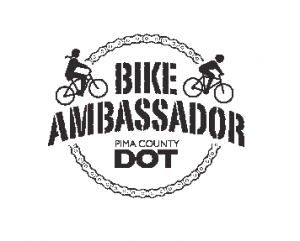 In its third year, the region’s Bicycle Ambassador program worked with more than 6,500 cyclists.
In its third year, the region’s Bicycle Ambassador program worked with more than 6,500 cyclists.
The program spent $53, 590 to reach those cyclists in 2010, according to a report released by Perimeter Bicycling Association of America, which was contracted to manage the program.
The program is funded by a Transportation Enhancement grant from the Federal Highway Administration as well as local funds from Pima County and the City of Tucson.
The program has 41 ambassadors and is broken down into three main categories including adult bicycle education and diversion classes, elementary and middle school education classes and the University of Arizona bicycle station.
Adult Education classes
About 70 percent of the 1,101 cyclists who attended education classes participated in the diversion program. The diversion class allows cyclists who were ticketed for traffic violations to avoid paying the fine by attending the class.
Sixty-two women took a women’s specific cycling safety course and a women’s mechanic class.
Elementary and middle school education classes
Bicycle ambassadors spoke to 1,035 kids at various elementary and middle schools throughout the region. They utilized safety talks, walks and bicycle safety rodeos.
University of Arizona bicycle station
The University of Arizona Bicycle Station assists cyclists on Tuesdays and Wednesdays on the mall outside Bear Down Gym. The station registers bicycles using the UA’s registration program, fixes flats and repairs basic mechanical problems.
In 2010 the ambassadors who work at the station fixed 329 flats, repaired 879 basic mechanical issues and registered 1,082 bicycles.
2011 Goals
- Hiring more ambassadors, particularly youth
- Ride shared-use paths and set up portable information centers to distribute safety materials
- Work with libraries to permit ambassadors to distribute bike safety materials from portable tables
- Work with more schools to teach bike safety
- Work with Girl Scouts and Boy Scouts to engage more of their troops in bike safety classes
- Encourage bike clubs at schools with ambassadors serving as mentors/advisors
- Continue with outreach projects on shared use paths to distribute safety class materials, bike maps, and other items as they are available
- Continue with bike counts at selected intersections and on shared use paths
- Approach retirement communities to teach “adult bike rodeos” to residents
Download the entire report for detailed information about the program.
